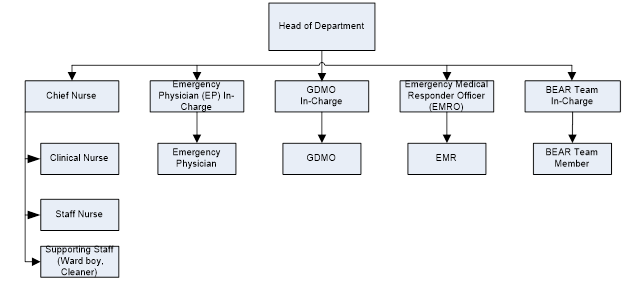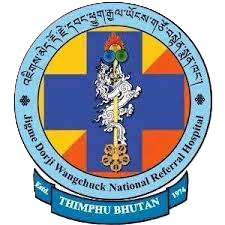Emergency
The Emergency Department at JDWNRH provides 24/7 emergency medical care with a highly skilled team of Emergency Physicians, General Duty Medical Officers, Clinical Nurses, Emergency Medical Responders, and support staff. Serving over 40,000 patients annually, the department handles cases ranging from life-threatening conditions requiring resuscitation and critical care to minor emergencies and urgent care.
Vision
To become a center of excellence in Emergency Medicine education, clinical care, and the development of leaders in emergency healthcare.
Mission
- Provide high-quality emergency care for acute and life-threatening conditions.
- Support professional development for all staff through continuous education.
- Set and uphold the highest standards of emergency medicine.
- Promote impactful research to advance emergency medicine pr.actice
Our Values
- Integrity: Committing to honest and reliable care for patients.
- Evidence-Based Decision-Making: Applying knowledge in a culturally sensitive manner.
- Accountability: Upholding responsibility and meeting commitments.
- Collaboration: Engaging in interdisciplinary problem-solving.
- Initiative: Constantly improving departmental effectiveness and focus.
- Critical Thinking: Ensuring clarity, accuracy, and logical reasoning in care.
- Professionalism: Committed to ethical, respectful, and high-standard behavior.
- Caring: Demonstrating kindness and compassion.
- Teamwork: Working collaboratively for the best patient outcomes.
- Safety: Prioritizing safe practices in all procedures.
Services Provided
1. Triage Unit:
2. Resuscitation Unit:
3. Acute Medical Care Unit:
4. Short Stay Unit (SSU):
5. Minor Procedure Unit:
6. Minor Emergency Unit:
7. Emergency Pre-Hospital Care:
Patients are prioritized by urgency into four levels to ensure timely care.
Dedicated area for critical and life-saving procedures with two adult and one pediatric bed.
Urgent care for non-ambulant patients, seen within 30 minutes.
Observation and treatment for patients requiring less than 24-hour care.
Wound care, fracture casting, suturing, and other minor procedures.
Quick care for non-critical, ambulatory patients needing minor attention.
Emergency responders provide essential pre-hospital care during ambulance calls.
Organogram

Clinical Services Units
- Triage Unit
- Resuscitation Unit
- Acute Medical Care Unit
- Short Stay Unit
- Minor Procedure Unit
- Minor Emergency Unit
- Emergency Pre-Hospital Care
Training Programs
- Master’s in emergency medicine
- Diploma in Emergency Medical Response
- Basic Life Support (BLS)
- Advanced Cardiac Life Support (ACLS)
- First Aid
Achievements & Challenges
Achievements
- Initiated Masters in Emergency Medicine and Diploma in Emergency Medical Response.
- Developed department SOPs and protocols for critical procedures.
- Established the Bhutan Emergency Aeromedical Retrieval (BEAR) Team.
Challenges
- Limited emergency physicians and high GDMO turnover.
- Space congestion and long patient boarding times.
- Need for year-round availability of essential emergency medications.
Future Goals
- Expand emergency facilities, including an isolation room and patient counseling areas.
- Improve diagnostic services through a dedicated mini emergency lab.
- Enhance the Emergency Department Information System to better manage resources.
- Strengthen emergency security with trained personnel and CCTV coverage.
JDWNR Hospital
- JDWNR Hospital, Thimphu: Bhutan
- Post Box # 128
- +975-322496/322497/325244
- +975-2-325384
Archives
- October 2024 1
- June 2024 1
- July 2023 1
